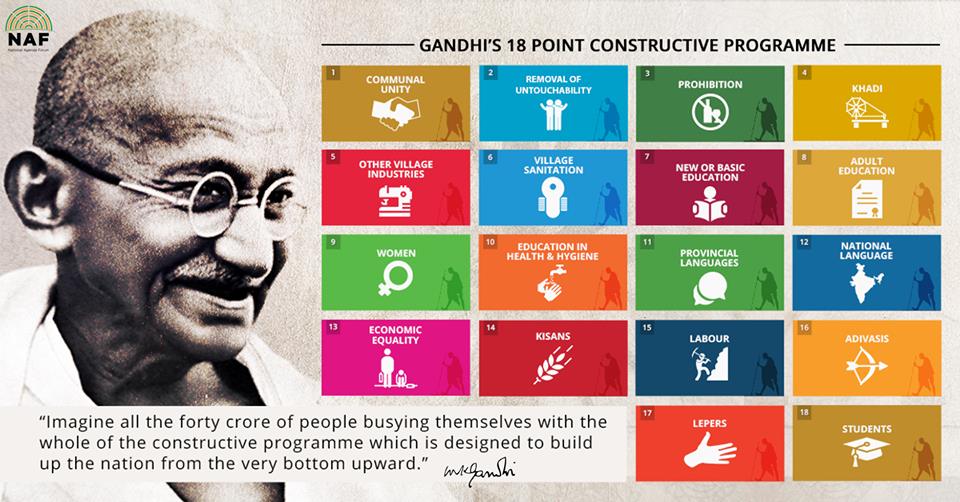Gandhian Principles of Sustainable Development
Sustainable development is the practice of meeting current needs without compromising future generations’ ability to meet theirs. Mahatma Gandhi’s philosophy emphasises ethical living, social justice, and environmental stewardship. His principles are increasingly relevant in ‘s quest for sustainable solutions.
Historical Context
Mahatma Gandhi (1869-1948) was a prominent leader in the Indian independence movement. He advocated non-violence (Ahimsa) and truth (Satya) as core values. The concept of sustainable development gained prominence in the late 20th century, addressing environmental issues alongside social and economic concerns.
Core Gandhian Principles
1. Ahimsa (Non-violence)
Ahimsa signifies non-violence in thoughts, words, and actions. It promotes harmony with nature. This principle advocates for environmental ethics, urging humans to avoid harm to ecosystems. By embracing Ahimsa, individuals can encourage a more sustainable relationship with the environment.
2. Satyagraha (Truth Force)
Satyagraha is the pursuit of truth through non-violent resistance. It emphasises the importance of truth in social justice. This principle calls for transparency in development practices. Upholding truth encourages accountability in environmental stewardship and resource management.
3. Sarvodaya (Welfare of All)
Sarvodaya translates to the welfare of all. This principle seeks to uplift all segments of society, especially the marginalised. Inclusive development is crucial. It ensures that the poorest and most vulnerable benefit from progress and resources.
4. Self-reliance (Swadeshi)
Self-reliance promotes local economies and sustainable practices. It critiques excessive consumerism and the pitfalls of globalisation. Emphasising local resources and traditional knowledge can enhance sustainability. This principle encourages communities to support their local industries.
5. Simplicity and Minimalism
Gandhi advocated for a simple lifestyle. Simplicity reduces consumption and waste. Living minimally aligns with sustainable living and ecological balance. It encourages individuals to assess their needs and prioritise environmental responsibility.
Gandhian Economic Principles
1. Decentralization
Decentralisation is vital for sustainable development. It supports small-scale industries and local agriculture. This approach empowers communities and encourages resilience. Localised economies can adapt better to environmental changes.
2. Sustainable Agriculture
Gandhi promoted organic farming and traditional agricultural methods. He critiqued industrial agriculture for its environmental degradation. Sustainable agriculture prioritises ecological health and food security. It encourages biodiversity and soil preservation.
3. Equitable Distribution of Resources
Equitable distribution advocates for fairness in wealth and resource allocation. Addressing inequality is essential for sustainable development. This principle ensures that all community members have access to opportunities and resources.
Environmental Ethics
Gandhi viewed nature as a living entity. He believed in the interconnectedness of all life forms. This perspective encourages a sense of responsibility towards the environment. Conservation and responsible stewardship of natural resources are paramount in Gandhian thought.
Social Justice and Community Empowerment
Gandhi emphasised grassroots movements and community participation. Empowering communities is essential for sustainable development. Education and awareness promote sustainable practices. Women’s empowerment and gender equality are critical for holistic development.
Global Relevance
Gandhian principles influence contemporary sustainable development movements. Numerous organisations and initiatives draw inspiration from his philosophy. His teachings remain relevant in addressing global challenges, such as climate change, poverty, and inequality.
Critiques and Challenges
Critics question the applicability of Gandhian principles in modern industrial societies. Integrating his philosophy with current economic and political systems poses challenges. There is a need to balance traditional practices with technological advancements. Finding this balance is crucial for effective sustainable development.
Legacy of Gandhian Principles
The legacy of Gandhi’s principles continues to inspire movements for social and environmental justice. His vision encourages a more ethical and sustainable approach to development. As the world grapples with pressing issues, Gandhian philosophy offers valuable insights.


